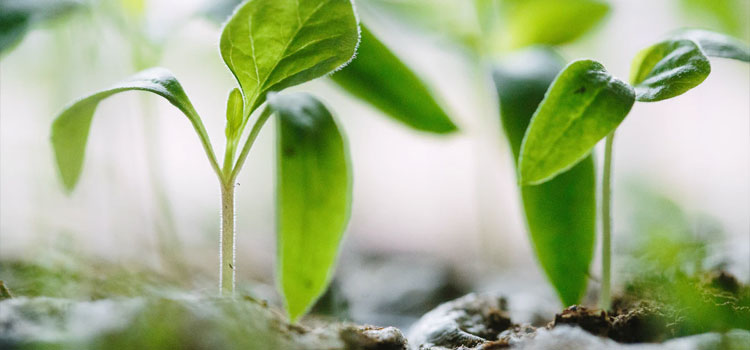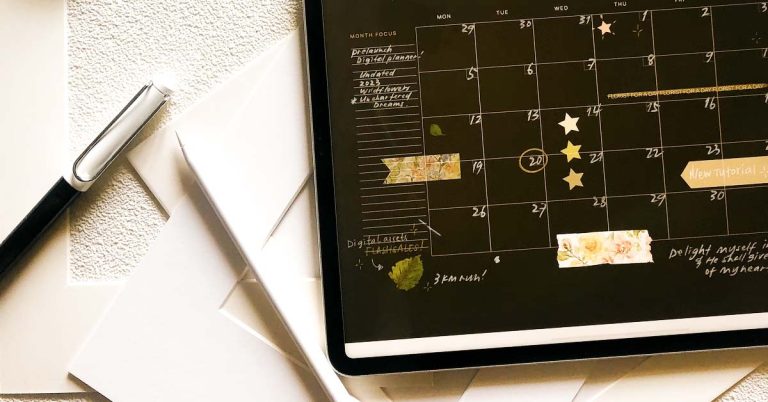If you’ve always had a green thumb and you’re looking for ways to bring extra income from home, did you know that you can make money gardening?
- Inbox Dollars - Get paid to check your email. $5 bonus just for signing up!
- Survey Junkie - The #1 survey site that doesn't suck. Short surveys, high payouts, simply the best.
- Nielsen - Download their app and get paid $50!
I’m talking about real cash that you can supplement your income with, or better yet, turn into a full-blown business that you can operate totally from the comforts of your own home.
Sound interesting?
Here are 7 ways you can make money gardening
The cool thing about the methods below is you can pick and choose which income-generating gardening activity you want to focus on depending on your interests and available garden space. You can start small, or plan big for all the methods below – it’s totally up to you.
1. Sell Fruits and Vegetables
Nothing is more fulfilling than being able to plant and harvest fruits and vegetables. Although some plants take months (or even years) before you are able to harvest, there are many others that are easier to grow and sell. You just need to figure out what kinds of fruits and vegetables your place and climate can cultivate. Here are some examples:
- Vegetables – Some vegetables grow year-round and are perfect for beginners. These include beetroot, potatoes, garlic, onions, beans, peas, radishes, cucumbers, bell peppers, and leafy greens like lettuce and spinach. You can start in small pots and expand once you’ve gotten the hang of it. If you have limited space, you can even stick to sprouts and microgreens – they’re quick to grow and easy to multiply.
- Fruits – Fruits are trickier because they take years to grow. (Except if you consider tomatoes and cucumbers a fruit, then that’s a debate we should talk at another day). Planting fruit trees should probably be a long-term plan because your returns wouldn’t be until 5 to 10 years. Examples include lemons, pears, apples, tangerines, avocados, peaches, plums, and various berries (cherries, strawberries, blackberries, and so on).
- Mushrooms – Mushrooms are technically not plants, but part of the fungi family. Some types of mushrooms, like oyster and shiitake, can be grown indoors. They grow and multiply exceptionally fast even in small spaces (25-pound/square foot) and can be sold at around $5 to $10 a pound.
Once you’ve harvested and have sold to everyone you know, but don’t have the certifications to sell at the farmer’s market, check out sites like Ripe Near Me where you can find people who would love to take the produce off your hands for a fair price.
2. Make Money Gardening Flowers and Decorative Plants
If you haven’t found success in gardening fruits and vegetables, maybe you can try decorative and flowering plants. For example:
- Succulents – As a favorite housewarming gift or as a new-job gift because they aren’t the hardest to take care of. Jade, aloe vera, cactus, and a whole range of succulent plants are also super easy to propagate. Some even multiply by themselves if you leave them outdoors. Invest in tiny, adorable pots, re-pot these babies, and sell them by-the-pot.
- Flowers – You can sell flowering plants by the pot, or sell the actual flowers. It totally depends on how much you want to commit to a gardening business. You can even join local wedding sites and offer your flowers to would-be brides. Or better yet, partner up with a local florist and see if they could give you a good deal.
- Indoor plants – Indoor plants are awesome investments but can be hard for beginners to grow. If you made a jungle for your living room and want to sell some of your beloved plants, you’d surprise how much you can sell snake plants, Photos, spider plant, Dracaena, ZZ plant, Philodendron, Rubber Tree, and Alocasia if you presented them in a cool pot. You can even look for interior designers or real estate agents near you who would be interested in buying your plants.
- Indoor trees – If you check out housekeeping magazines, I bet you can find a picture or two with gigantic trees near a stylishly staged living room. If you’re able to propagate plants like the Fiddle Leaf Fig tree, Calamondin Orange Tree, Parlor Palm tree, and Umbrella trees (among others), you’re lucky because these sell quite high.
Depending on how much plants you’re able to produce and sell in any given month, you can even start an online shop for your plants. Start small by opening up a Facebook page, instead of building a website from scratch.
3. Sell Seeds, Seedlings and Cuttings
You don’t even need to let your plants grow full size. You can make money gardening by selling seeds of from your last harvest, planting seedlings for sale, or taking cutting from your grown trees.
You’d be surprised that there are passionate hobbyists for every type of produce. Hot-peppers have a huge community and people from all walks of life buy and sell seeds of Habanero, African Devil, Trinidad Scorpion, Ghost Pepper, and Carolina Reaper (among many more). Some of them have no luck growing from seeds, so they begin with seedlings instead.
When it comes to cuttings (or small pieces cut from larger plants), some plants work and some do not. Mulberry is a good example of plant cuttings that can be shipped and survive even up to a week before repotting. If you have a lot of cuttings to sell, go to a nearby nursery and see if they’d be willing to buy.
4. Sell Homemade Products from Your Garden
The potential for products you can sell from your garden is unlimited. Below are just some examples of how you can make money gardening:
- Herbs, spices and herbed butter – If you are fond of growing herbs, you can try to multiply them and sell them as a set. You can even create your own recipe of dried-herb spice mix and advertise it for steak lovers, pizza lovers, and so on. Herbed butter is a good example of how you can turn herbs into a well-loved product. Experiment and level-up ordinary butter into fancy herbed butter – you’ll be shocked at how many people look for this.
- Fruit smoothies – For those with an oversupply of strawberries, cherries, other fruits and vegetables, you can turn them into smoothies and offer them at a nearby grocery store. Some people just post these products on Instagram or Facebook and turn neighbors into loyal customers.
- Dried produce – Invest in a dryer and go crazy drying out apples, peaches, and even vegetables to make dried snacks. People trying to eat healthy would love new things to try.
- Home décor – Potpourri, acorns, and other things from nature used as home décor can become a business. Even what other people may think of as trash, you can still turn into gold. Check out what Etsy has when it comes to rustic home décor so you could have an idea of what plants can be sold.
- Candles and soap – Flowers and other plants with fragrance are often mixed with handmade soaps and candles. If you have a lot of flowers to dispose of, why not get into candle making or soap making business as well?
- Homemade compost and potting soil – Veteran gardeners know how to make their own “black gold” or compost. And how to create potting soil for succulents, vegetables, or any other specific plant.
These are just a few ideas on the top of my head. I bet you can check out your garden now and think of more things you can turn into gold.
5. Sell Canned & Bottled Produce from Your Garden
Once you’ve got your vegetable and fruit garden down to a science, you already know which produce you’ll be able to harvest in the next week or month. Aside from selling the produce outright, another way to bring your goods into the market is to learn bottling and canning fruits and vegetables. This way, you’d be able to make products like:
- Sauces – From hot sauce to salsas, relishes and other similar concoctions, if you’re able to mix your own blend, you can sell them as well.
- Pickled Everything – There are tons of fruits and vegetables you can pickle beyond the traditional cucumbers. Carrots, onions, peppers, rhubarb, squash, asparagus, cauliflower, ginger, green beans, peaches, strawberries and many many more. Depending on what fruit or vegetable you pickled, you can sell them by-the-jar for $20 to $50 per quart jar.
- Oils and vinegar – Did you get a surplus of garlic harvested this year? Turn it into chili garlic oil and bottle it up for sale. Regular vinegar can also be sold when mixed with your spice mix, hot peppers, ginger, or onions for one-of-a-kind, bottled spiced vinegar.
- Fruit syrups, jams, jellies and marmalade – These products are always a hit at the farmer’s market because homemade tastes much better than their mass-produced, store-bought counterparts.
6. Get into Beekeeping for Honey Products
Not all communities will allow you to keep bees, so better check first. Once you do and you’re interested in making money beekeeping, check out my more in-depth guide about beekeeping as a business.
7. Make Money Gardening by Renting it Out
If your garden has turned out into a garden like the Mad Hatter’s, or a place you can chill and host people, you can hire out your garden for private parties (weddings, birthdays, romantic dinners, and so on), meetings, craft workshops, and other similar events.
If you have a mini farm and would love to host people for apple picking, or other kinds of “picking,” then send invites to your local community. You’ll earn money from the entrance fee you’d be asking per person.
Are you up for sharing your knowledge? You can make money gardening by teaching others how they could grow certain plants, trees and vegetables themselves.
The Bottom Line
Like any kind of business, there are guidelines for every type of produce, plant, or business idea you wish to pursue.
It is guaranteed that you can make money gardening, but not all areas will allow you to do so. Before you prep your soil for planting or buy supplies, make sure you check with your homeowners’ association, zoning regulations, or even city restrictions if you are violating any rules and if you need a license.
For example, in California, if you deliver your own produce to customers or have them pick it up from you, you don’t need any license to sell fruits and vegetables. But if you’re planning to sell on a farmer’s market, you’ll have to apply for state certification. Of course, this will depend on which state or city you live in, where or how much you’re selling, and so on. It’s better to be sure than waste startup money.
Don’t miss this post if you’re interested in more ways to make money from nature.




